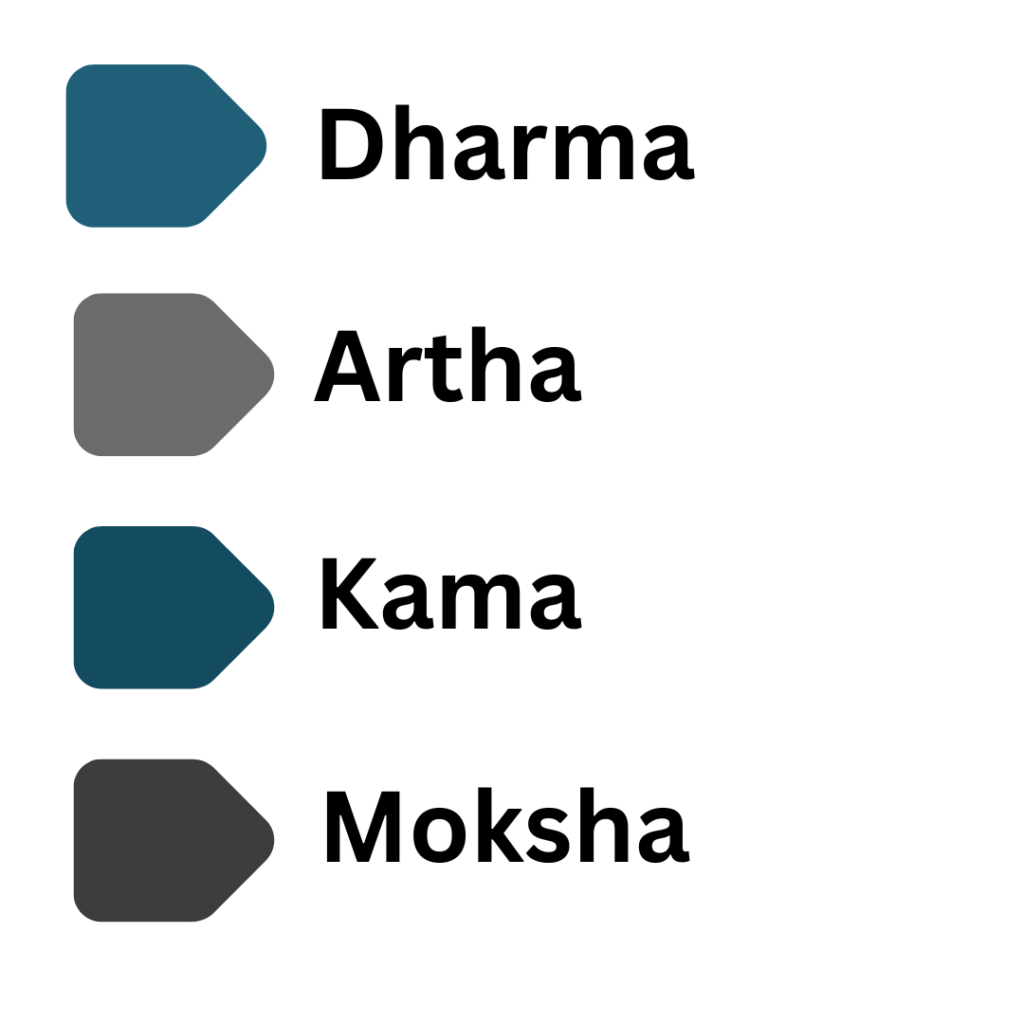
In part 1 of this series, I introduced you to the 4 aims of human life, or purushartas. Check it out to review dharma, or purpose, and artha, or material means. Today we finish out the series with a discussion of kama and moksha.
Kama is pleasure, enjoyment, and delight. The question addressed by this aim is “What do I want?” Again, these wants do not exist independently of our dharma, but support it. Kama enriches human life and is essential for flourishing.
The Upanishads have this to say: “As is your desire so is your will, as is your will, so is your deed, as is your deed, so is your destiny, and you are what your deep driving desire is.” In other words, be careful what you wish for. The important thing to remember with kama is to avoid things like addiction, sloth, greed, or lust.
The final aim of human life, according to yoga philosophy, is moksha. This is a full awakening to our true nature, and therefore, a liberation from suffering. It is said that our ignorance of who we really are results in much suffering. In yoga this is called avidya. It is a misperception of ourselves, others, and all things. As such, the question moksha addresses is “Who am I?”
The Upanishads state that when we achieve moksha we treat others with respect, regardless of how they treat us. We don’t expect praise from others and are able to return anger with soft and kind words. We are humble, patient, compassionate, and have a clear and steady mind. We are comfortable being in the presence of others, and never harm another.
There is disagreement among scholars of yoga philosophy as to whether it is possible to achieve moksha in this life. I think that considering who you really are is a worthy endeavor. It will tie in to your purpose and how you think about things, enjoyment, and relationships.
So according to yoga philosophy, the blueprint for human flourishing is that we find our purpose (how we uniquely serve others), gain what we need to fulfill that purpose, and engage with pleasure in a way that supports it. As a result, we become aware of who we really are, and can engage with others from that awareness.
